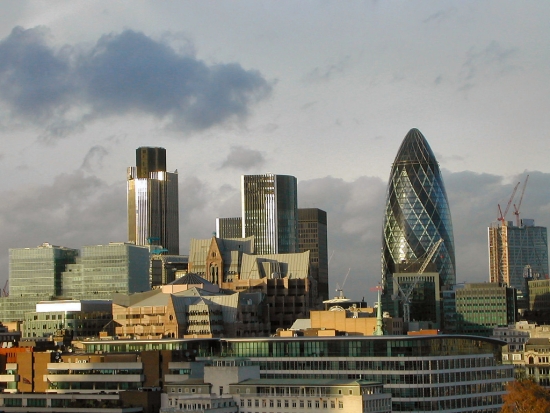The first quarter of 2013 has yielded some excellent property deals in the UK’s capital city, proving beyond doubt that London is still one of the prime markets for businesses to locate to in Europe. With a strong financial sector, a booming tourism industry and a wealth of consumers on the doorstep it is becoming imperative to have a foothold here for many international companies.

According to commercial property brokers Cushman & Wakefield, deals worth a total of £2.75 billion were completed in London during the first quarter of 2013. While this is down from the £3.98 billion recorded in the final quarter of 2012, it still shows a significant interest in the capital and generated a huge amount of motivation for further development in the key areas of the market.
Four large buys accounted for three quarters of the deals in the City and Docklands areas, which totalled £1.77 million altogether. The Ropemaker deal alone, completed by a consortium led by Axa Real Estate, accounted for £472 million of the total, with the sale of 5 Canada Square to Martins of Kuwait hot on its heels at a price of £383 million.
A partnership deal between TPG and Canadian investor Ivanhoe Cambridge came together on a £265 purchase deal for the Woolgate Exchange, furthering the presence of both firms in London. Finally, Palestra was sold to German research and development firm Deka for £225 million.
In total, overseas investors entering into or expanding within the London market accounted for 71 per cent of total sales.
Head of City investment at Cushman & Wakefield, Bill Tyser, seemed optimistic regarding further growth of the capital city’s market, yet warned that constraints on available space could cause a contraction if not checked in time.
He said; “Activity remains strong with over £2 billion of transactions reportedly under offer.
“Again much of this activity is limited to a small number of substantial transactions and whilst there are concerns over the availability of stock to meet this intensified demand, there are also signs of profit-taking emerging from investors who acquired property at the beginning of this ‘crisis cycle’.”
Of course, other cities in the UK are also facing mounting pressure to expand their pools of available commercial property – experts have voiced concerns, for example, over the availability of Grade A office space in Birmingham.
However, with manufacturing picking up slightly in the first quarter, it is hoped that these limitations will be lifted by further property developments.
Previous Post
Survey says Internet is More Important than Water